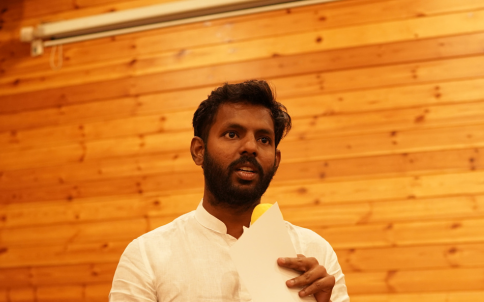Environmental concerns and issues are discussed at international conference tables. The debate taking place at the macro level is perceived as something best left to political leaders and policymakers, says TDP leader Naga Sravan Kilaru, General Secretary, TDP Youth Wing from Andhra Pradesh. Whereas the debate has to take place at all levels and taken to the grassroots, in particular among farmers and fisherfolk, who are most affected and at risk by Climate Change and environmental challenges.
Fresh from participating in the southern region Net Zero workshop in Goa, the engineer-turned politician speaks with passion about environmental issues confronting his State. The workshop, a part of a pan-India fellowship program of the independent think-tank School for Policy and Governance (SPG) to sensitise political and public leaders to climate change, has triggered a keen interest among the 27 participantsfrom the southern states.
The whole issue needs to be elevated to the level of a movement, feels Naga Sravan. The narrative needs to shift to grassroots, which is where the action must take place. “With 790 km of coastline, there is every reason for Andhra Pradesh to be concerned. Beaches have eroded at several places with abnormal tides and perceptible rises of 2-3 degrees in temperatures.”
Fishermen’s livelihoods are at threat with diminishing catch and bird life and ecology have been adversely affected. Instead of politicising the debate, it is time that the narrative is made acceptable to all parties, so that changes in government do not affect policies. Along with political leaders, all constituencies – bureaucrats, academics and students – need to be sensitised to issues and the dialogue made wider.
The Net-Zero workshop has come timely. Leaders such as Naga Sravan attest to the key role of advocacy in the whole debate and how the narrative needs to change. Andhra Pradesh would need to walk the extra mile and work towards policies and actions that emerge from the grassroots.
With a focus on climate change and Net Zero, the program offers a comprehensive understanding of the issues and pathways towards achieving a sustainable future. Through a series of pan-India Regional Workshops over the next few months, some 100 participants are being introduced to climate change issues and Net Zero, its impact, and ways to address them.
The dialogue is crucial for transitioning participants from viewing net zero as a trade-off with development to understanding it as an integral part of future development in India.




